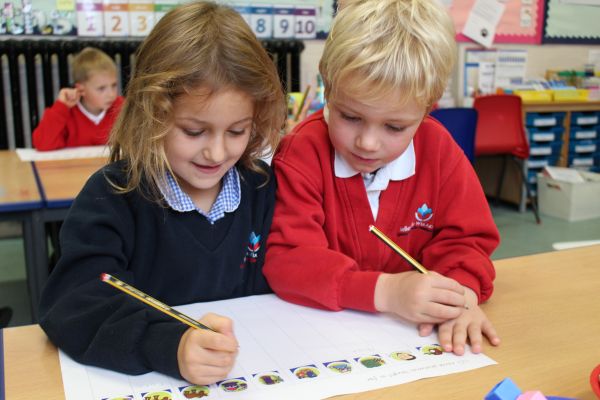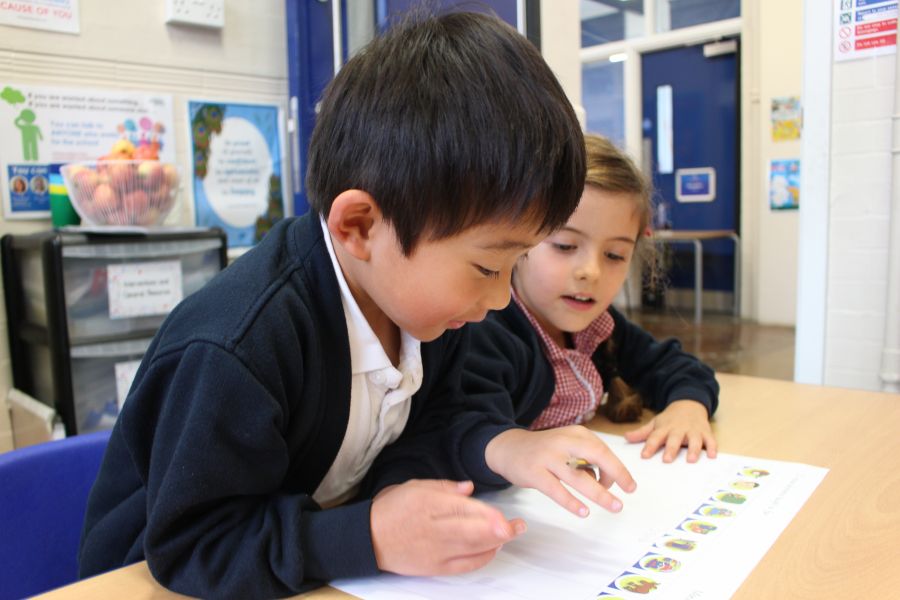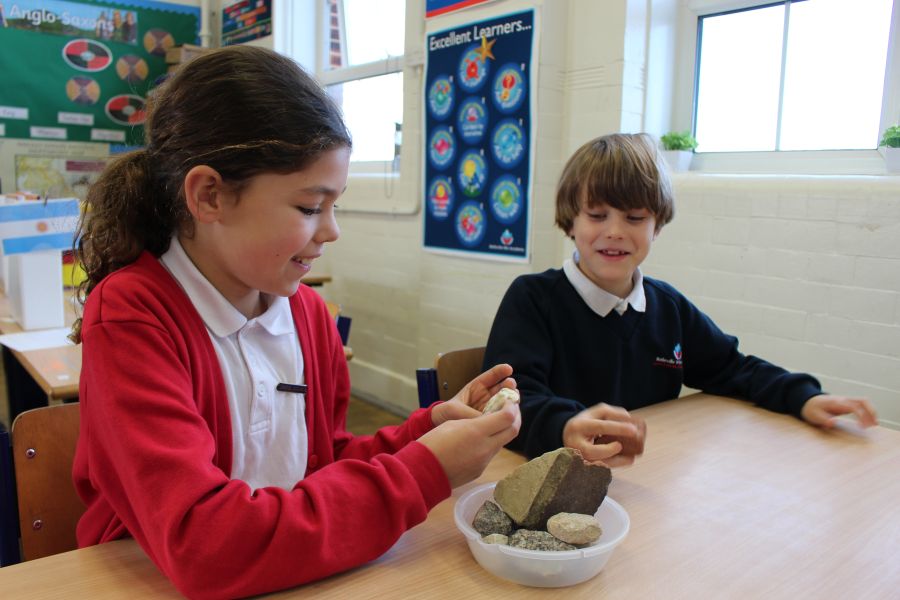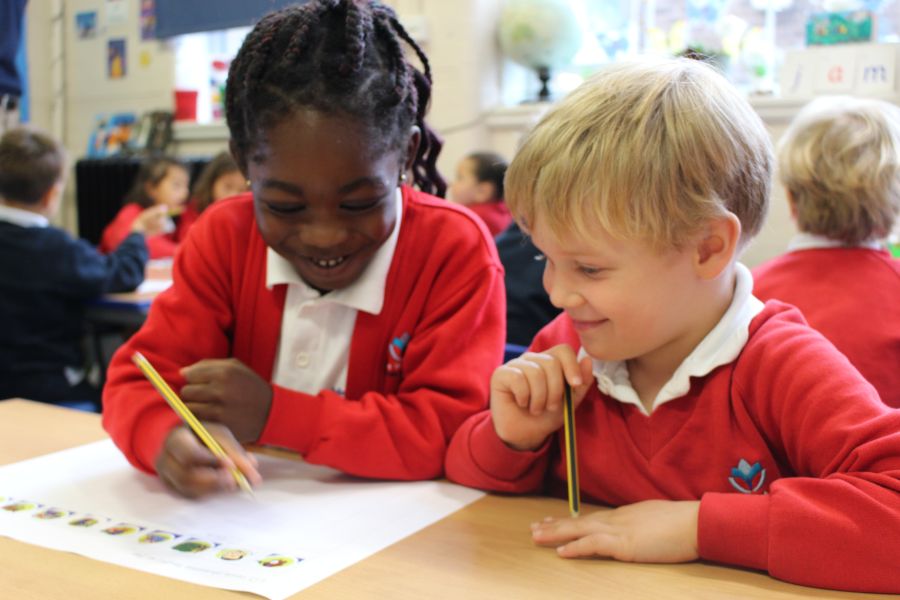
Welcome to Our School
We are a vibrant and inclusive primary school which shares a unique bi-cultural community with École de Wix. We offer an English stream and a bilingual French/English stream from Reception to Year 6, and a Nursery taught in English.








